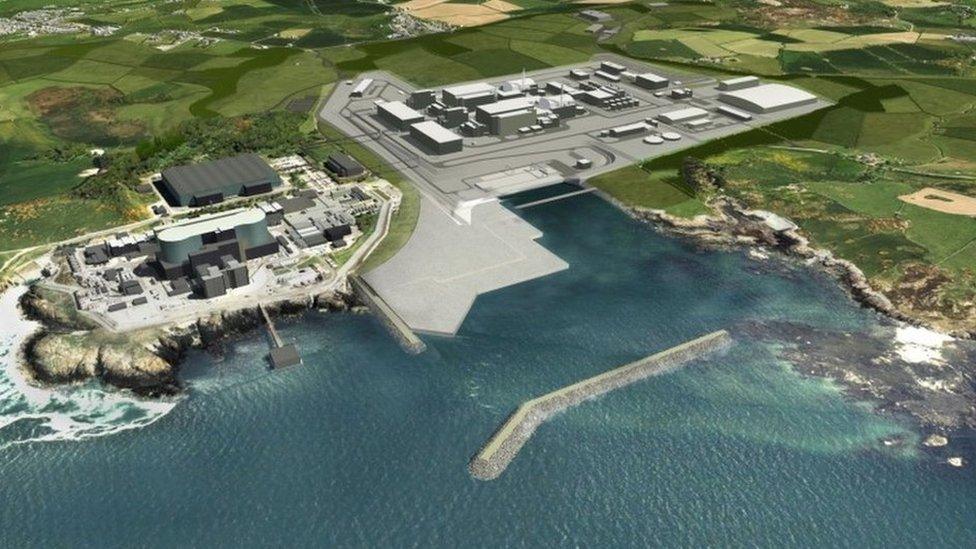Climate change: Aberthaw Power Station bought to secure green energy
- Published
Aberthaw Power Station used coal to produce electricity for almost 60 years until it closed in 2019
A former coal-fired power station could be transformed to produce green energy and create thousands of jobs.
Previous owners RWE stopped generating electricity from coal at Aberthaw Power Station in 2019.
But Cardiff Capital Region, which represents the 10 councils in south Wales, has bought it for £8m hoping to create a "beacon of energy security".
The plan is to develop the 500-acre site at a cost of £36.4m, with the hope of creating 5,000 jobs.
Cardiff Capital Region (CCR) said they have taken control of the site to stop "a speculative approach" that might "asset strip the site" and sell it off.
They said much of its infrastructure, including two electricity sub stations, has been retained and could be re-used to attract new green industries and drive "clean economic growth" across south east Wales.
The immediate plans for the Vale of Glamorgan site include a solar farm and extraction of minerals from the ash mound, built up from decades of coal burning.
A greener future?
Plans for the future could include so-called giga-factories, building the batteries needed to power electric vehicles.
CCR is expected to consider whether green hydrogen could be made on site, another renewable energy alternative to putting diesel or petrol in our cars or using gas to heat our homes.
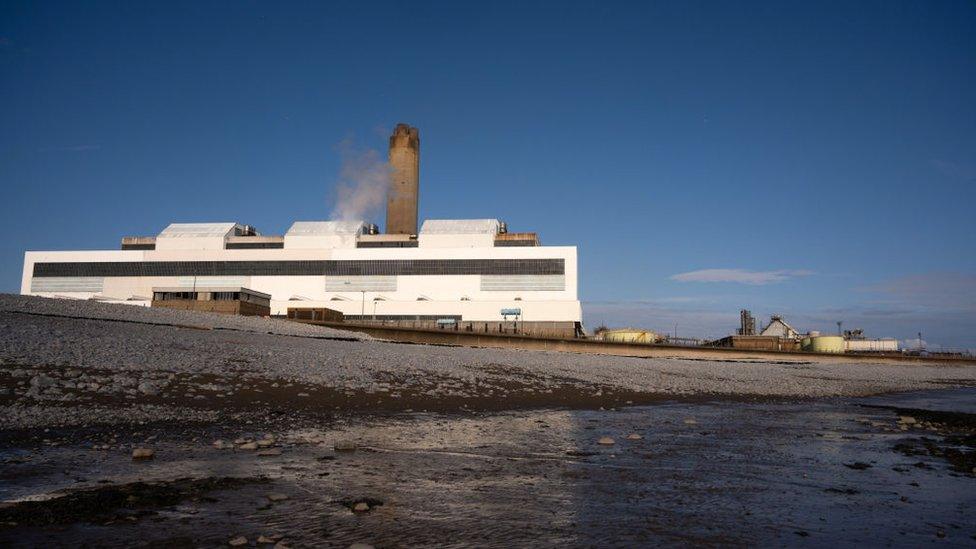
Aberthaw Power Station's location and infrastructure could make it attractive to new green industries, says Cardiff Capital Region
In a world increasingly dependent on computer servers and digitally held information, large data centres are likely to be in demand. The Aberthaw site could be attractive to big data companies if it contains a large reliable supply of renewable energy.
"This is about being ambitious, being quite bold. This isn't something that you'd expect the public sector to do every day," said CCR director Kellie Beirne.
"The whole rationale of us acquiring this site is that we are in the game."
Plans are progressing for a large array of floating wind turbines in the Celtic Sea between Wales and Ireland.
Ms Beirne said Aberthaw could be where the electricity generated from that investment could reach land and join the National Grid.
"If we hadn't acquired this site you'd have to ask yourself how much potential we'd have to go for some of those big projects," she said.
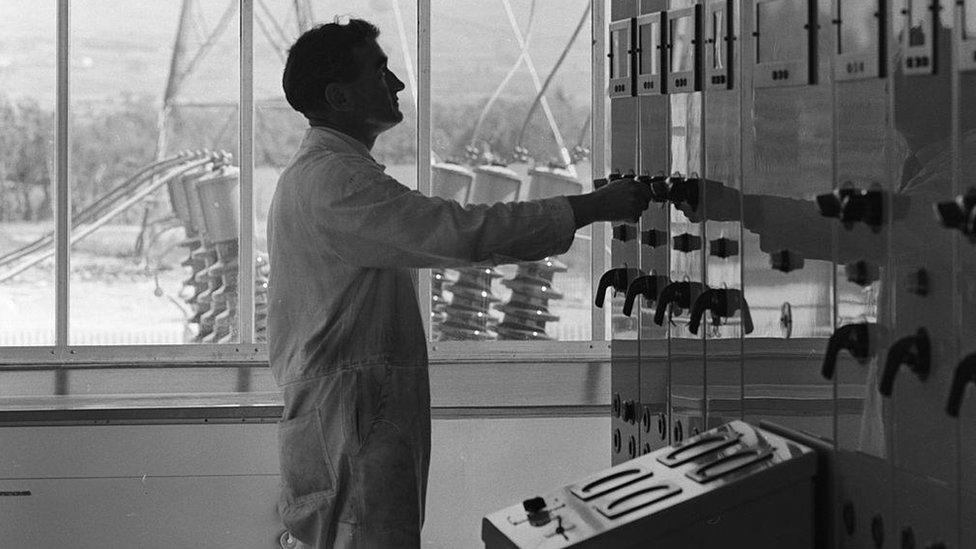
It is hoped the power plant can have a greener future - and create thousands of jobs
CCR hopes that by taking control of this site, it can approach the financial markets for investment.
Aberthaw has good links with industrial sites at Bro Tathan, Cardiff Airport and the wider St Athan Enterprise Zone.
Land around the decommissioned power station will be transformed into a bio-diverse ecology park and the nature reserve already in place will be extended.
When the coal-fired power station was working to full capacity, it produced enough electricity to power 1.5 million homes. But the days of a few huge generators, running on fossil fuel, powering so many homes have gone - mostly because of the damage they did to the environment.
The developers' hope is that a range of renewable energy sources will form part of this site's future, but they cannot yet say how much energy will be generated.
Professor Calvin Jones from Cardiff Business School said: "Especially in the renewables field, Wales has suffered from non-local corporates coming in and getting land and benefits that don't accrue locally."
He supports the idea of local ownership but questioned the strategy of buying the site before deciding exactly how to use it.
"What is special about it that will bring employers in. We have a tendency in Wales of buying and building things first and then worrying about what's going to go on them later.
"The question is, what does the city region need now? I live in a part of the city region where I know that not many people are going to go to that part of the world for a job.
"It needs to be really carefully thought through [with] a really sophisticated set of activities, otherwise we will just build employment stuff on there and it will unfortunately - like many other employment sites in Wales - remain partially empty if not mostly empty."
Lis Burnet, deputy leader of the Vale of Glamorgan council, defended the decision to buy from one of the largest energy companies in Europe.
"We have seen a lot of situations where there is no control over what the private sector is doing," she said.
She added that because local government is involved, "local people have a voice to make their voice heard and we will keep reporting back on developments".
"So we can say what is the right kind of development... and what is right for local people and we can make sure it happens."

STARS OF WALES: World class Welsh musical talent
LAST CHANCE TO SAVE: Will Millard explores some of Wales’s hidden historic buildings

Related topics
- Published24 April 2021
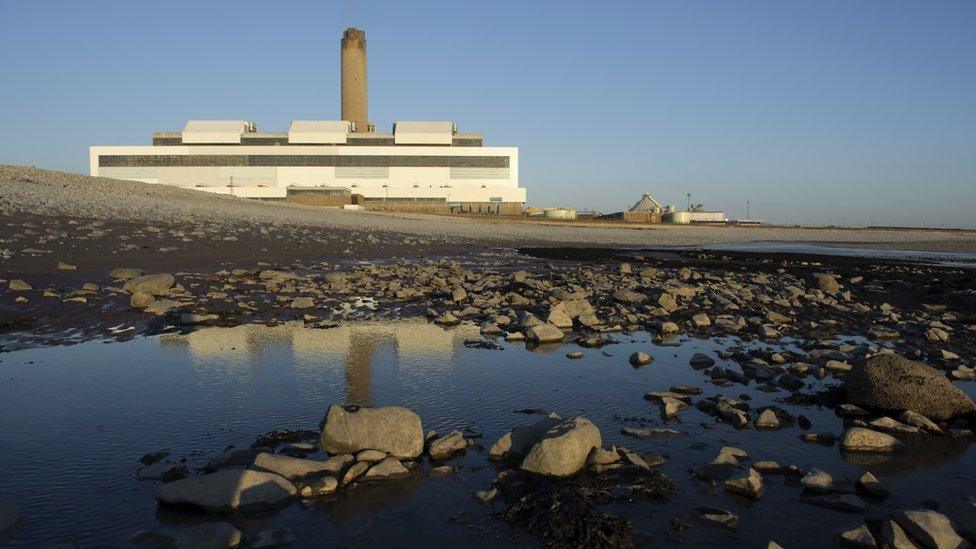
- Published10 May 2021
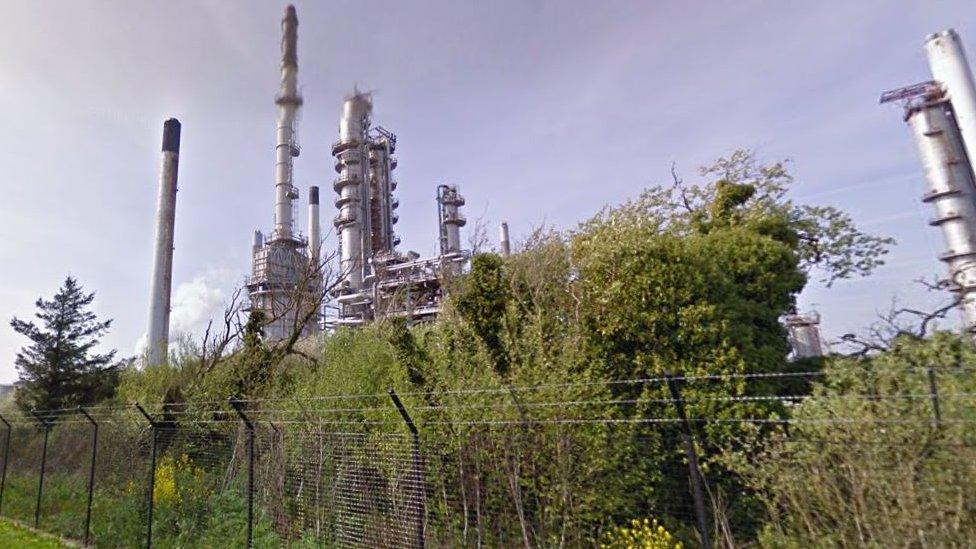
- Published15 November 2020
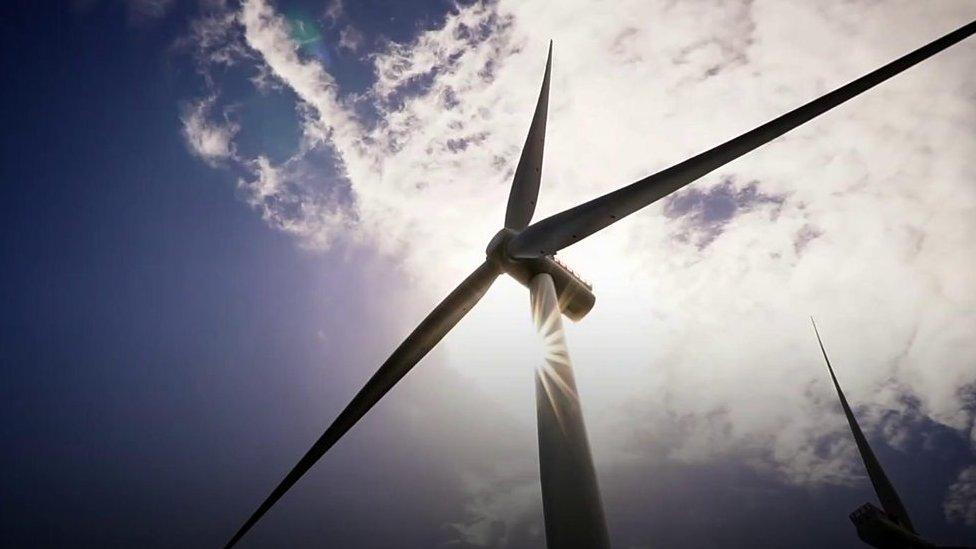
- Published1 August 2019
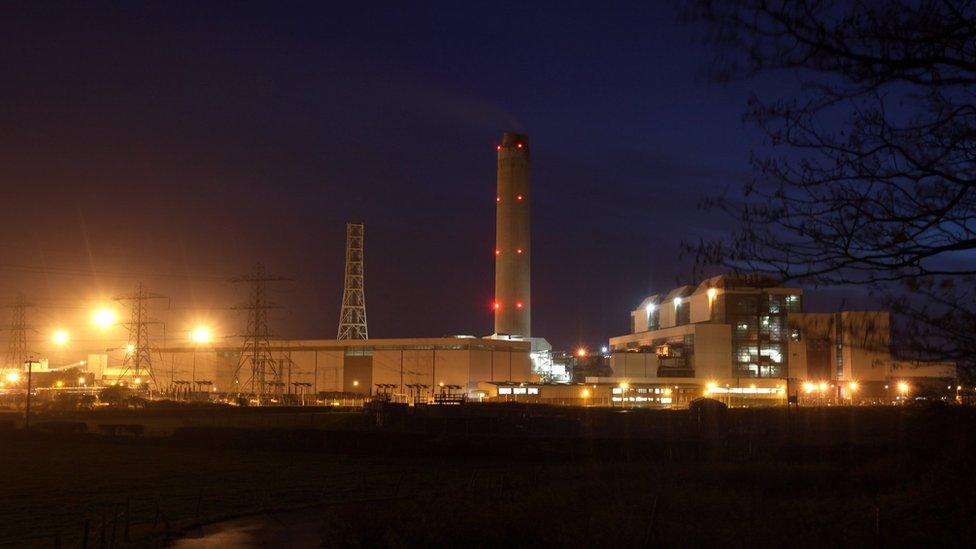
- Published17 January 2019
